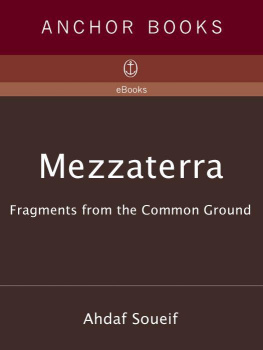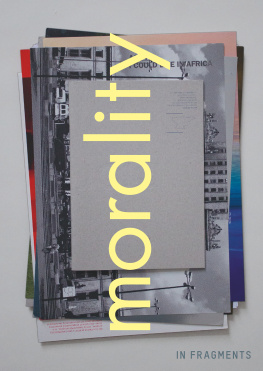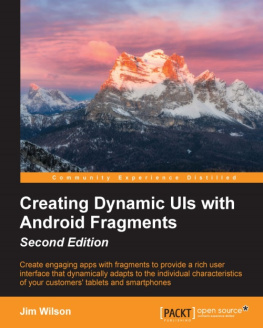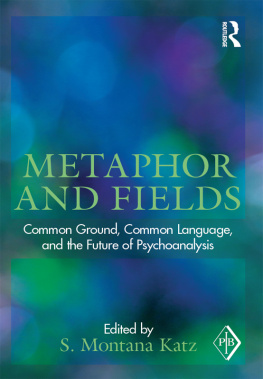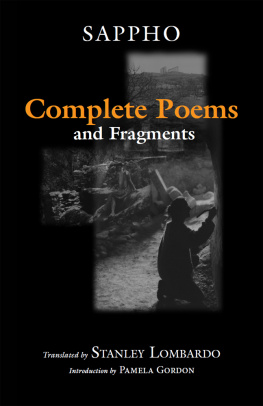Ahdaf Soueif - Mezzaterra: Fragments from the Common Ground
Here you can read online Ahdaf Soueif - Mezzaterra: Fragments from the Common Ground full text of the book (entire story) in english for free. Download pdf and epub, get meaning, cover and reviews about this ebook. year: 2005, publisher: Anchor, genre: Detective and thriller. Description of the work, (preface) as well as reviews are available. Best literature library LitArk.com created for fans of good reading and offers a wide selection of genres:
Romance novel
Science fiction
Adventure
Detective
Science
History
Home and family
Prose
Art
Politics
Computer
Non-fiction
Religion
Business
Children
Humor
Choose a favorite category and find really read worthwhile books. Enjoy immersion in the world of imagination, feel the emotions of the characters or learn something new for yourself, make an fascinating discovery.
- Book:Mezzaterra: Fragments from the Common Ground
- Author:
- Publisher:Anchor
- Genre:
- Year:2005
- Rating:4 / 5
- Favourites:Add to favourites
- Your mark:
- 80
- 1
- 2
- 3
- 4
- 5
Mezzaterra: Fragments from the Common Ground: summary, description and annotation
We offer to read an annotation, description, summary or preface (depends on what the author of the book "Mezzaterra: Fragments from the Common Ground" wrote himself). If you haven't found the necessary information about the book — write in the comments, we will try to find it.
Mezzaterra: Fragments from the Common Ground — read online for free the complete book (whole text) full work
Below is the text of the book, divided by pages. System saving the place of the last page read, allows you to conveniently read the book "Mezzaterra: Fragments from the Common Ground" online for free, without having to search again every time where you left off. Put a bookmark, and you can go to the page where you finished reading at any time.
Font size:
Interval:
Bookmark:

Ahdaf Soueif
MEZZATERRA
Ahdaf Soueif was born in Cairo. She is the author of Aisha, Sandpiper, In the Eye of the Sun, and the bestselling novel The Map of Love, which was short-listed for the Booker Prize in 1999. She also has translated from the Arabic the award-winning memoir I Saw Ramallah by Mourid Barghouti.
ALSO BY AHDAF SOUEIF
FICTION
Aisha
Sandpiper
In the Eye of the Sun
The Map of Love
TRANSLATION
I Saw Ramallah by Mourid Barghouti

For my sons, Omar Robert and Ismail
Richard, and all other inhabitants of
the common ground.
O Mankind, We have created you from male and female, and made you into Nations and Tribes that you may get to know one another. The one that God honours most among you is the one that fears Him most. And God is knowing of all things.
Qurn, al-Hujurat, 13
2000
Under the Gun: A Palestinian Journey
2001
Our Poor, Our Weak, Our Hungry
2002
America
2003
Staying Alive
2004
This Torture Started at the Top
1981
The Circus Comes to Town
1986
Passing Through
1986
Goat Face
1987
Heroine of the Operetta
1992
Lovers and Terrorists
1993
Intimately Egyptian
1994
Islamic Perplexities
1995
A Mistaken Return to Tehran
1996
Land of Stone and Thyme
1997
The Sands of Timelessness
2000
Becoming Edward Said
2001
Al-Jazeera
2002
Cabool Cotillion
2003
It Matters
2004
Palestinian Writers
Holland Park. He came towards me through the crowd in the drawing room of the grand house that Id never been in before and have never been in since. Come, he said, Ill show you the menagerie. That was twenty-five years ago. I have, in a way, been examining the menagerie ever since.
I had thought it made no difference where one lived: Cairo, London, what was a four-and-a-half-hour flight? We were citizens of the world and the world was fast becoming more connected. I saw the difficulty only in terms of the personal life: on the one hand, how much would I miss my family, my friends, the sun, the food, the life? On the other, what was life worth without this miraculous new love?
We married in 1981. But I did not move to London permanently until 1984 when our first child was born. The pieces collected in this book span the years from then to now.
I think of myself as a writer of fiction. But fiction follows its own rhythms; it cannot be forced. In my experience, fiction except of a certain raw kind will not be born today out of todays events. The impressions, insights and feelings of today need to be laid into the rag-bag a writer takes along everywhere. Later, much later perhaps, you will draw them out and examine them: which have held their colour and which have faded? Youll position them this way, that way: what patterns might they offer?
Journalism, on the other hand, responds to the days most pressing concerns, tries, even, to nudge them onto a different track. These non-fiction pieces, then, are the direct product of the interaction between my self and the condition of living in the UK.
That I was not aware of the nature of the situation I had stepped into is, with hindsight, clear in the earliest two pieces in the book. Looking at them now they seem to me to be written in a space free of pressing political concerns, confident of the goodwill of the reader, easy with just having some fun. More than twenty years later, the difference between the mood of Many Flights into Egypt and Genoa: City of Light and Shadow reflects more, I think, than the passage of years.
There were specific lessons to be learned: the article about the family-planning campaign, The Circus Comes to Town was, under an Observer syndication agreement, published in Israel without my knowledge. It looked as though I, an Egyptian, was making fun of an Egyptian project in an Israeli newspaper. I learned to retain my copyright.
I shared, of course, in the general life of the country that had become my other home. I supported the soccer team my husband supported, kept an eye on house prices, formed political opinions and found that whatever view I might hold about Margaret Thatcher or Europe or the proposed changes to the medical care, I was bound to find it expressed somewhere in the common discourse of the mainstream media. Where I felt myself out of step was when this discourse had anything to do with Egypt, the Arabs or Islam. I had become used to what was at the time an unequivocal support for Israel in the British media, but it troubled me that in almost every book, article, film, TV or radio programme that claimed to be about the part of the world that I came from I could never recognise myself or anyone I knew. I was constantly coming face to face with distortions of my reality.
I reasoned that this must be the experience of every alien everywhere and that it shouldnt be taken personally. But it was a constant irritant and world geo-politics meant that interest in my part of the world was growing. Lebanon was suffering the tail end of both the Israeli invasion and its own civil war (which was the direct result of the troubles in Palestine). Afghanistan became the crucible in which thousands of disaffected, young mainly Arab Muslim men were being transformed into a fighting force pitted against the USSR. Then the Soviet Union imploded. The Gulf War came and with it the imposition of sanctions on Iraq, the basing of US troops in the Arabian peninsula and talk of a New World Order. In the run up to the Gulf War, Israelis and Palestinians were summoned to negotiations in Spain and Norway and the world applauded while a perceptive few foresaw the disaster for which the Oslo accords laid the ground plan.
It was impossible apart from a few notable exceptions to find in the media of the West coherent interpretations of all this that did justice to the people of the region and their history. If the New World Order was a mechanism to control the Arab and the Muslim worlds then I felt that the media of the West was complicit in it; for they always represented those worlds in terms that excused or even invited the imposition of control.
Was this misrepresentation reciprocal? If I were an American or British person living in Egypt, and if I knew Arabic well enough to read the mainstream Arabic press, would I constantly be brought up short by skewed accounts of my history and culture? Would I switch on the television to find a doom-laden voice intoning about how the Celts worshipped the massive stones placed on Salisbury Plain by astral beings? Would I switch on my car radio and hear an account of yet another outbreak of Christian paedophilia, with a background theme of church bells and Christmas carols? Would I wander into the movies and come face to face with an evil American character bent on destroying the third world so the cinema audience cheers when the Arab hero kills him? I have to say the answer is a resounding no. Where the Arab media is interested in the West it tends to focus on what the West is producing today: policies, technology and art, for example particularly as those connect to the Arab world. The Arab media has complete access to English and other European languages and to the worlds news agencies. Interpretative or analytic essays are mostly by writers who read the European and American press and have experience of the West. The informed Arab public does not view the West as one monolithic unit; it is aware of dissent, of the fact that people often do not agree with policy, of the role of the judiciary. Above all, an Arab assumes that a Westerner is, at heart, very much like her or him. Many times I have heard Palestinian village women, speaking of the Israeli soldiers who torment them, ask Does his mother know hes doing this?
Font size:
Interval:
Bookmark:
Similar books «Mezzaterra: Fragments from the Common Ground»
Look at similar books to Mezzaterra: Fragments from the Common Ground. We have selected literature similar in name and meaning in the hope of providing readers with more options to find new, interesting, not yet read works.
Discussion, reviews of the book Mezzaterra: Fragments from the Common Ground and just readers' own opinions. Leave your comments, write what you think about the work, its meaning or the main characters. Specify what exactly you liked and what you didn't like, and why you think so.

